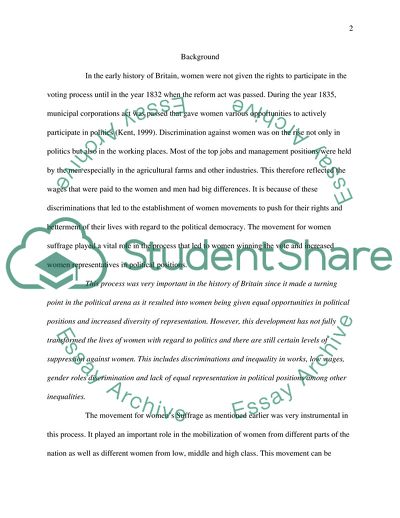Cite this document
(Status of Woman in Political Life Essay Example | Topics and Well Written Essays - 2750 words, n.d.)
Status of Woman in Political Life Essay Example | Topics and Well Written Essays - 2750 words. https://studentshare.org/history/1751887-winning-the-vote-made-little-difference-to-womens-status-in-political-life-discuss
Status of Woman in Political Life Essay Example | Topics and Well Written Essays - 2750 words. https://studentshare.org/history/1751887-winning-the-vote-made-little-difference-to-womens-status-in-political-life-discuss
(Status of Woman in Political Life Essay Example | Topics and Well Written Essays - 2750 Words)
Status of Woman in Political Life Essay Example | Topics and Well Written Essays - 2750 Words. https://studentshare.org/history/1751887-winning-the-vote-made-little-difference-to-womens-status-in-political-life-discuss.
Status of Woman in Political Life Essay Example | Topics and Well Written Essays - 2750 Words. https://studentshare.org/history/1751887-winning-the-vote-made-little-difference-to-womens-status-in-political-life-discuss.
“Status of Woman in Political Life Essay Example | Topics and Well Written Essays - 2750 Words”. https://studentshare.org/history/1751887-winning-the-vote-made-little-difference-to-womens-status-in-political-life-discuss.


